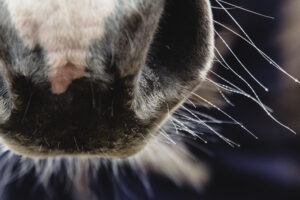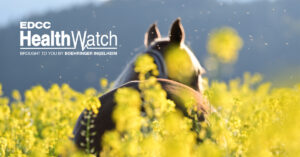Latest News – The Horse

Endotoxemia in Horses
Learn about this life-threatening condition that occurs when Gram-negative bacteria or parts of their walls access a horse’s blood.

How to Predict Foaling
When will your mare foal? Learn the signs of impending foaling and what prognostic tools can help.

4 Ontario Horses Test Positive for Strangles
The horses live in Simcoe and Essex counties.

Florida Donkey Tests Positive for Strangles
The donkey lived in Union County.

Washington Horse Confirmed Positive for Strangles
The horse lives in King County.

Massachusetts Horse Tests Positive for EHV-1
The horse lived in Essex County and was euthanized.

Managing Horse Wounds: To Bandage or Not to Bandage?
Ah, the age-old question: When managing horse wounds, should you wrap them or let them “air out”? Researchers are working to determine whether bandaging is the best option and in what circumstances.

Breeding Aging Mares
How to decide if your older mare is a good candidate for breeding and improve her chances of success.

Shock Wave Therapy and Kissing Spines
Learn how and why this approach is a cornerstone in the treatment of dorsal spinous process impingement.

Conditioning Arthritic Horses: Do’s and Don’ts
A horse’s ridden or competitive career doesn’t have to end after an osteoarthritis diagnosis. Two experts share tips for conditioning these animals.

Young Foal Exercise
When do I start my foal on an exercise program? What type of exercise should I start him with, and when?

Updates on DSLD in Horses
Two experts describe this degenerative suspensory ligament condition in horses and what new information researchers are learning about it.

3 Ontario Horses Test Positive for Strangles
The horses live at a boarding facility in Simcoe County.

Florida Mare Contracts EEE
The horse lived in Bradford County and was euthanized.

Rules for Feeding Horses Forage
An equine nutritionist emphasizes the importance of fiber in horse diets and shares 2 rules for safe fiber-feeding practices.

Tackling Equine Gastric Ulcers
Here’s how you can recognize the early signs and risk factors for EGUS, and how veterinarians diagnose and treat the condition.











